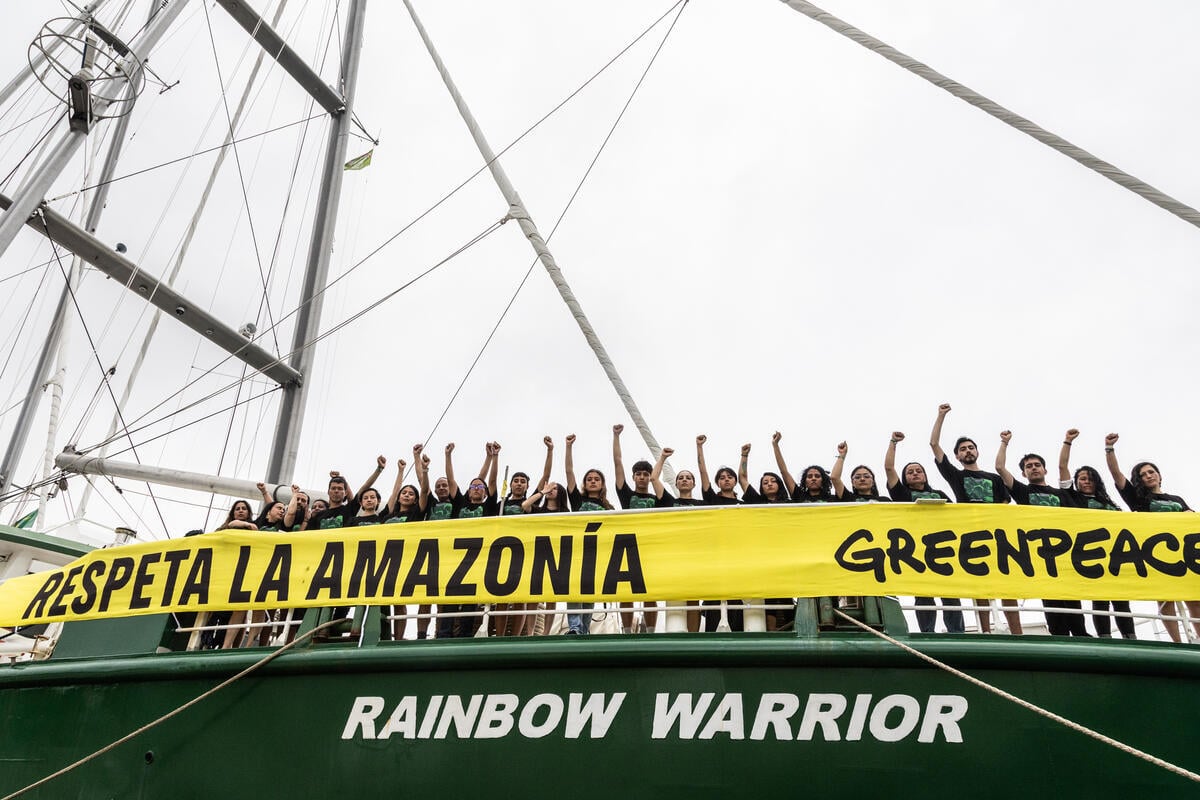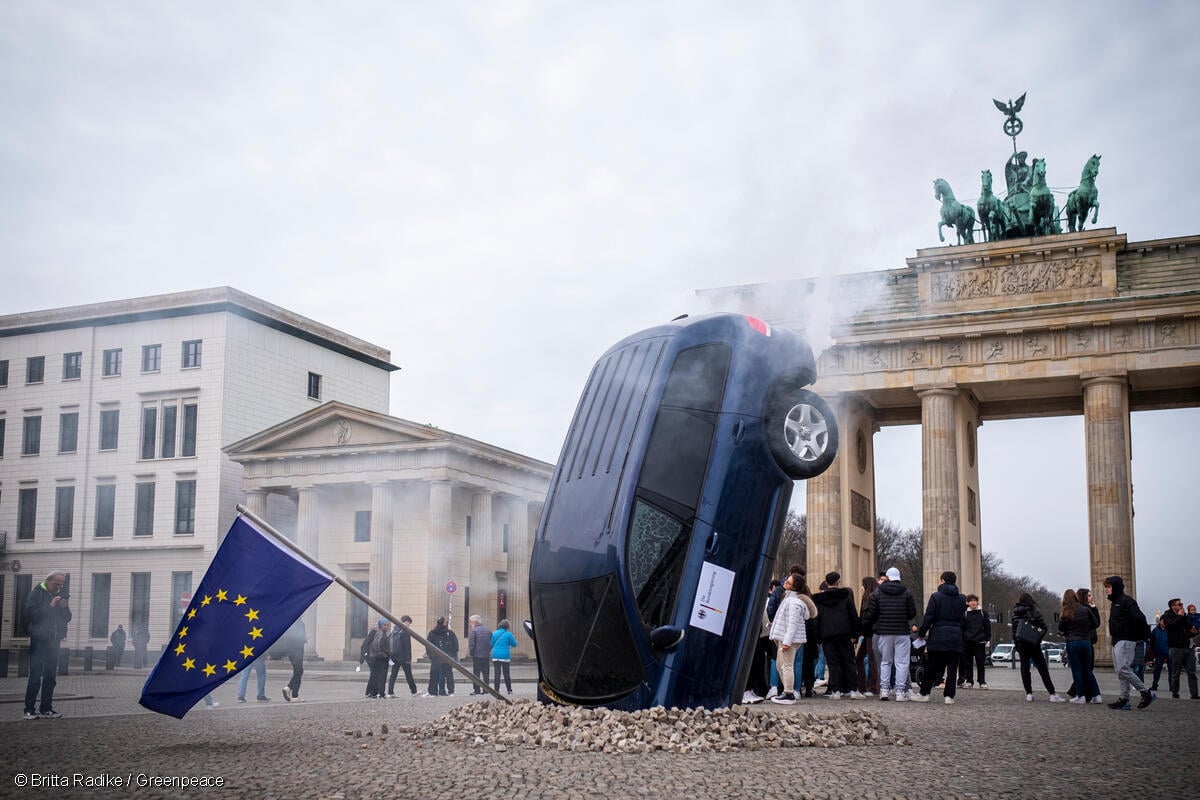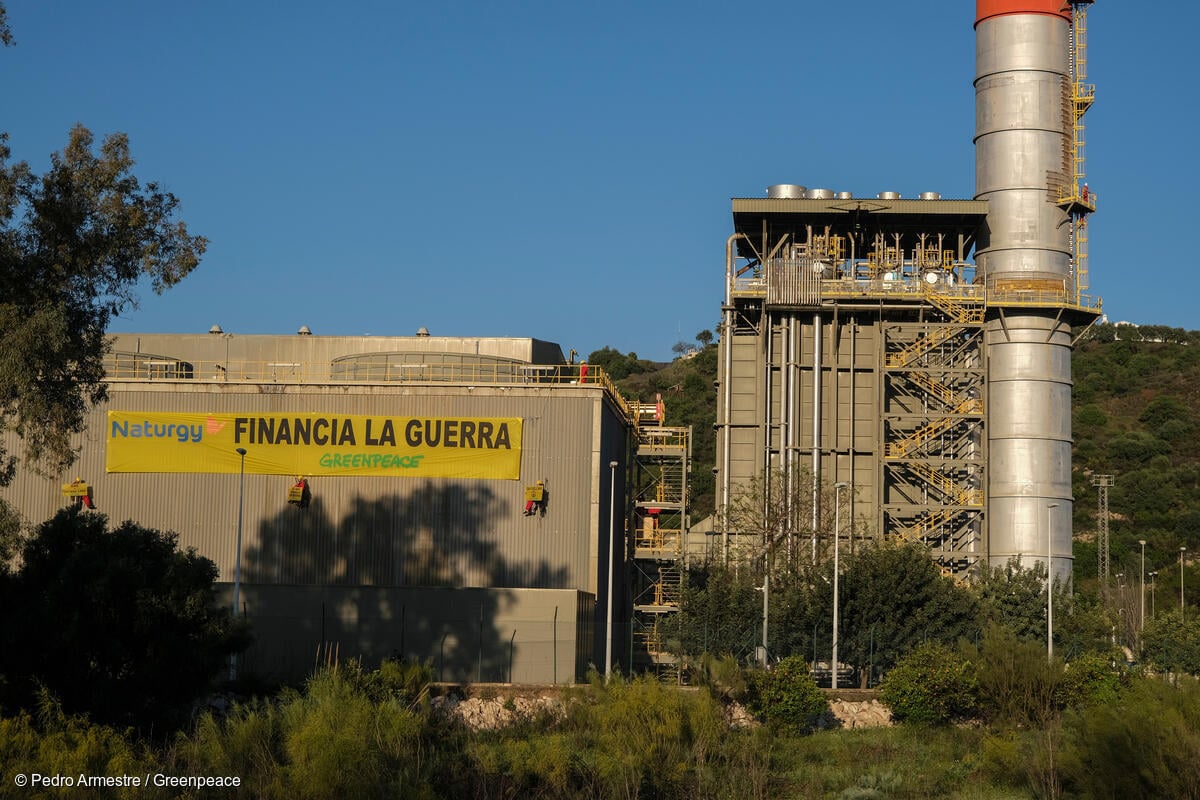
Brussels – The European Commission’s proposed climate target for 2040 falls short of what its own climate scientists advised, amounting to a 90% cut in carbon pollution on paper alone, Greenpeace warned. Today’s proposal would see a target of 90% cuts to net carbon emissions – taking carbon removed from the atmosphere into account – and also allow 3% of that to be made up by paying countries outside the EU to cut their pollution instead of decarbonising in the EU.
The European Scientific Advisory Board on Climate Change stressed just last month that the EU should have a target of 90-95% net emission cuts by 2040, and that this decarbonisation should and could happen within the EU.
Greenpeace EU climate campaigner Thomas Gelin said: “People across Europe pay a high price for inadequate climate action – when the continent isn’t baking in dangerous heatwaves, it’s ravaged by more frequent and destructive storms and floods. The EU’s 2040 climate targets should drive a shift away from fossil fuels, starting with an EU ban on new fossil fuel projects, towards renewables and energy-saving, to cut people’s energy bills, make their homes easier to heat and cool, and clean the air they breathe. Instead the European Commission relies on dodgy accounting and offshore carbon laundering to pretend to hit the lower bound of what its climate scientists advise. The EU, as a historical polluter, has the responsibility to cut its own pollution, and ironically will make the necessary changes harder for European households and businesses by delaying even further.”
To make the 90% target more acceptable to climate-indifferent or even climate-denying conservatives, the European Commission allows the possibility to count “high-quality” international carbon credits for up to three percentage points, starting from 2036. This means EU governments could pay lower-income countries outside the EU to cut their emissions, and count this as progress towards the EU target.
The inclusion of international carbon credits is one of several ‘flexibility’ mechanisms the Commission has included in the 2040 climate target in an attempt to sweeten the deal. As the target is a ‘net’ target, the Commission is also allowing a larger role for counting ‘permanent’ removals of carbon from the atmosphere towards this goal. Depending on the method, ‘permanent’ carbon removals are more or less long-term, and some can have devastating impacts on other planetary boundaries, like biodiversity. Combined with wide-ranging references to cost efficiency and economic efficiency, and flexibility between polluting sectors, there are so many loopholes and caveats in the Commission’s 90% target that the true emissions cuts will be much lower, Greenpeace is warning.
The Commission’s plan does include some measures that give hope for improvement, according to Greenpeace. The legislation is supposed to take into account the best available scientific advice, including from the Scientific Advisory Board on Climate Change – though the Commission seems to have already ignored the Advisory Board’s warning that EU emissions cuts should be made domestically. The Commission’s plan also says it should also assess the costs as well as the benefits of inaction on climate (research finds the cost of inaction to be significant), protect and restore biodiversity, and ensure a fair transition.
Greenpeace is calling on the EU to agree legislation that cuts carbon pollution in line with what science and the EU’s historical responsibility demands, and to do it in a fair way that protects nature and the most vulnerable in society, while making those most responsible for the climate emergency carry the burden of the necessary changes.
Next steps
The European Commission’s plan will now go to the European Parliament and national ministers for them to form their positions and propose amendments, probably in the coming weeks. Once the Parliament and ministers have agreed their separate positions, three-way negotiations between them and the European Commission can begin to finalise the 2040 climate target. National ministers and the EU are under some pressure to finalise a climate target before the UN climate conference COP30 in Belem, Brazil starting on 10 November.
Contacts:
Thomas Gelin, Greenpeace EU climate campaigner: [email protected] Tel: +32 473 57 04 46
Greenpeace EU press desk: +32 2 274 1911, [email protected]
For breaking news and comment on EU affairs: Greenpeace EU on Bluesky
Greenpeace is an independent global campaigning network that acts to change attitudes and behaviour, to protect and conserve the environment and to promote peace. We do not accept donations from governments, the EU, businesses or political parties. Greenpeace has over three million supporters, and 26 independent national and regional organisations with offices in more than 55 countries.
EU Transparency Register: 9832909575-41



